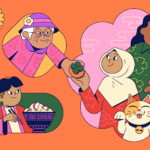
Last month, I wrote to Sana Mir, the captain of the Pakistan Cricket team, to invite her to speak at a Women’s Empowerment and Protection Conference at Lums in Lahore.
She responded saying she would have loved to attend it but that she would be flying out to India to play the Women’s WorldT20tournament.
I was embarrassed to say the least – how did I not know that the Women’s WorldT20 was also happening?
But then again, how often do I, or any of you, follow women sports in Pakistan anyway, given that they get no media coverage.
The thought prompted my colleagues and I at Never Forget Pakistan to do our bit in creating awareness about the team’s WorldT20 trail.
We started with a Facebook and Twitter profile filter campaign and were lucky to get the #GirlsInGreen trending in Pakistan. The filters included group shots of the team celebrating various wins and soon enough, fans – including local celebrities – joined in putting up these profile ribbons with pride.

Next, we created the song, Dum Azmane Aayi Re, as a tribute to all Pakistani women, who have broken traditional boundaries to enter competitive sports in the country.
Play
While the song is celebrating the on field challenges of sportswomen, it also talks about the biggest hurdles they face off the field: the public perception of women in public places.
The lyrics “patli kalai, aesay ghumai” are in response to those who see women as unfit for sports. The second verse specifically talks about the shackles in the minds of many of our men.
Were we setting out to do a favour? Not at all. Quite the opposite actually.
Despite minimum media coverage and a dearth of corporate sponsors, the girls in green are laying the ground for the future generation of female sport stars in Pakistan. And, not just in cricket.
Pakistani women are excelling in all sports. Footballers like Hajra Khan, squash players like Maria Toorpakay, tennis aces like Sarah Mahboob, weightlifting champions like Twinkle Sohail, swimming gold winners in Lianna Swan and athletes such as Naseem Hameed to name a few – all of whom are changing perceptions through pure passion and determination.
Our bid to draw attention to these players is not just about acknowledging them through media coverage, we need to work towards equal pay and equal opportunity for all of them – a fair and just socio-economic culture where our women can thrive and excel.
The players in our women’s cricket team come from supportive families, no doubt, but hurdles for women athletes in Pakistan extend beyond their houses.
The Pakistan women’s cricket team dedicating their win against India to their parents:
A societal level effort needs to be made to address the patriarchy that is not just a part of our culture but also sharply reflects in our economy – an example of which is a lack of support by big corporate brands for female athletes.
This very support could do wonders for the women’s team by developing a familiarity with larger audiences, which will, in turn, motivate more young girls to pursue professional sports.
We wanted to express our gratitude to the Pakistan women’s team for playing. Not winning or losing. Just playing, despite the odds.
[“source-Scroll”]










